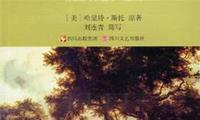茶花女英文讀後感
Those Beautiful Flowers
---Book Review: “Camille”
I read the Chinese version of “Camille” a few years ago. At that time I was deeply moved by the main character Marguerite Gautier. “Camille” or “The Lady of the Camellias” by Alexandre Dumas, fils, is the story of Marguerite Gautier, a young courtesan, or kept woman, in Paris in the mid 1800's, and how she falls in love with a young man, Armand Duval, and then tries to escape from her questionable past. Unfortunately, it comes back to haunt her and she ends up returning to that life and dies painfully and alone, but with the knowledge that she was a noble woman at heart. When I first began to read the book, I did not care for Marguerite or her attitude or lifestyle, but as I got further into the narrative, I realized that her saucy attitude was a front to cover the lonely woman that she really was. She felt used, abused and unloved, until the gentle Armand Duval came into her life and showed her that he loved her as a person and not for what she could do for him. It must have taken great courage for Marguerite to leave the life she had lived for so long, knowing all along that it was probably too good to be true and would not last indefinitely. And it also showed that Marguerite really loved Armand Duval for she could even change herself for him.
However, happiness didn’t last for long. When M. Duval, Armand's father, came to her, pleading for her to leave Armand to save both Armand's reputation and that of his younger innocent sister, Marguerite saw a way to become pure of heart, if not in body. She felt that it was her duty, because she loved Armand so much, to do this even though it meant giving up her own happiness and hurting Armand temporarily. She reluctantly returned to her former life, knowing that some day Armand would forgive her. Sadly, she died in debt and basically alone, except for her one female friend, Julie Duprat, who helped her during her illness. She had her journal sent to Armand after her death, explaining why she had made the choices she had. I think Dumas's last few lines about Marguerite being the exception, not the rule were quite true, and I also agreed with his view that while her lifestyle could not be condoned, we as a society assume that all of these type of women are cold and heartless, while this may not always be the case. A person can make the wrong choices in life when they are young, and try to redeem themselves, but sometimes past situations prevent them from changing their lives, even though they desperately wish to do so. This applies to both men and women in many different types of circumstances: involvement in crime; drug or alcohol abuse; gambling; prostitution; financial problems; poor marriage choices; etc. And this is the fact, which exists in the whole society.
As far as the other characters in the book, I think Marguerite was right in saying that no one truly cared about her, but only wanted something from her, the only exceptions being Armand and Julie Duprat. Of course, the Comte de G. and Comte de N. wanted her body and appearance. The Duke needed to “wake up and smell the coffee” and realize that she could never replace his dead daughter. If he truly cared, he could have helped her leave her lifestyle without “keeping” her himself. And lastly, Prudence was a blood-sucking leech who used Marguerite almost worse than the men.() I also think she was jealous of the fact that Marguerite had so much more courage than herself and someone truly loved her.
Last morning, when tiding my bookshelf, I took this book out of the shelf, and a dried flower flew away from the book. It was pale blue, very transparent, with thin fine veins. a dried flower flew away from the book. It was pale blue, very transparent, with thin fine veins. I held it against the morning light and blew on it. The soft breeze carried it away. Camille is just like the camellia, she could never escape from the destiny of withering. But it wasn’t her fault; it’s because of the evil of Capitalism and the hideousness of that society.
Suddenly, I remembered a saying: “Women are like the flowers”。 Those pretty women are like those beautiful flowers; their delicate beauty makes people feel they are the miracle of life. However, even the God envies their beauty. It seems that beautiful women always have tragic endings. As we are normal persons, even we can see the hideousness of humanity that results in their fate of withering, we can at most ask quietly in our hearts: Where have those beautiful flowers gone? Where have they gone?
茶花女讀後感英語(一)
The Lady of the Camellias is a classic book that written by famous author called Alexandre Dumas. The story set in Paris. There are two main characters in this book, Marguerite Gautier and Armand Duval. Marguerite is a pretty and young courtesan, or kept woman.A courtesan can't have the true love. But she falls love with a young man, Armand. She tries to get away from her questionable past and lives with Armand forever. But when Armand's father, Madame Duval knows that his son is falling love with a courtesan, he separates them. After Armand finds that his father lied him, he goes back to Paris, but Marguerite dies painfully and alone.
I really enjoy this when i was reading it. Marguerite taught me a lot. ()To love someone is just let him or her be happy.Marguerite throws out the lord who can repays her all debts and lives with Armand.But when Armand's father reminds her that she is just a courtesan, she realized she can't be recognized in Armand's family, she will stain Armand's reputation. So she leaves him. Marguerite's love is unselfish. Her self-sacrifice saved Armand's reputation.
蠅王讀後感(一)
故事發生在想像中的第三次世界大戰,一場未來的核戰爭中,一架飛機帶著一群男孩從英國本土飛向南方疏散。飛機被擊落,孩子們乘坐的機艙落到一座世外桃源般的,荒無人煙的島上。起初這群孩子齊心協力,後來由於害怕所謂“野獸”,分裂成兩排,以崇尚本能的專制派壓倒了講究理性的民主派告終。
我覺得這是一個十分引起人們思考的一本小說。印發了人們對“人性的黑暗”的認識。首先拉爾夫應該是主角吧,從一開始被選做頭領開始他就很盡責任的開始像一個大人一樣指揮。
最後的最後,大家的童心都已不復存在。多多少少他們都殺過人,他們的雙手早已不乾淨。文中貫穿全文的野獸,其實西蒙早已知道“大概野獸就是咱們自己”所有所謂想出來的野獸還是空中來的野獸都只是突出真正的野獸其實是人本身,
蠅王讀後感(二)
《蠅王》(LordoftheFiles)的作者威廉戈爾丁(WilliamGolding)生於1911年英國,是1983年諾貝爾文學獎的獲得者。小說情節並不複雜,描述的是在未來的一場核戰爭中,一架載著一群被疏散的男孩的飛機被擊落,倖存的孩子落到一座美麗的珊瑚島上,最終這些來自文明社會的孩子一步步蛻變成了野蠻人。
作者經歷過二戰,殘酷的戰爭使作者深刻認識到“惡出於人猶如蜜產於蜂”,他也正是通過這部作品來闡述這一事實。全書通過對孩子們臆想出的海裡的野獸、空中的野獸的描述,反映出真正的野獸其實就來自人本身,就是人的獸性發作。書中的孩子們一開始代表的是純淨、天真,
時間進入二十一世紀,這些先賢聖哲的作品離我們漸行漸遠,可是人性的本質卻並沒有發生太大變化。我們放棄原則和操守,向臆想的“野獸”低頭,文明社會的規範有時顯得那樣蒼白無力。在故事的結尾孩子們得救了,要回歸文明社會了,主人公哭了。回歸了文明社會就得到救贖了嗎?我看未必,真正的救贖在哪兒?我說不清。
蠅王讀後感(三)
《蠅王》是一本以孩子為主角的書,但卻不是一本通常意義上的兒童文學,這是一本寫給大人看的書,荒島上的兒童世界只是現實生活中成人世界的一個縮影。
在沒有大人的情況下,孩子們開始了在島上的冒險生活,這看似平靜的開局沒有延續。故事的一路發展出乎了所有讀者的預料,讀者被故事的情節所震驚也被故事所揭示的人性面貌而震驚。
島上的孩子中最突出的要算是十二歲的英國海軍司令的兒子——拉夫爾,有著一頭耀眼金髮的他舉止優雅、自信樂觀。()初至荒島,半長大的他為脫離了大人的管制獲得自由而欣喜若狂,
然而隨著唱詩班在傑克的帶領下一次次和野獸進行血腥地廝殺並獲得勝利之後,原本不屬於這個年紀孩子的獸性本能開始膨脹。人類千年積累下來的社會文明不禁推敲,在數次打獵之後就開始喪失,小島上的和平也在漸漸被打亂。人類千年的文明可以在瞬間崩潰,因為在它裡面,是千年不變的人性。
“海螺”和“蠅王”是文章當中兩個相對的意象。海螺能將所有的人彙集到一起。海螺被作為一種文明的象徵,出於對吹響海螺人的崇拜,拉爾夫被選為頭頭,並制定了一個規則,只有持海螺的人才能發言。也許規則在短時間內能夠得以執行的原因,不過是因為剛從文明世界出來的孩子,懲罰的恐懼還在迫使他們遵守。然而在一個陌生的環境下“蠅王”的神秘出現打破了平靜。“蠅王”即蒼蠅之王,源于希伯萊語Baalzebub,在《聖經》中“Baal”被當作“萬惡之首”,在英語中,“蠅王”是污穢物之王,也是醜惡靈魂的同義詞。蠅王似乎只是一個模糊的象徵,那麼蠅王究竟是何物?
懷著這個好奇繼續閱讀,我們發現有一個人也像我們一般在探究這個問題。他是“西蒙”。當感到恐懼的孩子們為“野獸”的事情爭論不休的時候,西蒙這個“瘦小卻挺有精神”的小孩發現了所謂“野獸大概就是我們自己”的真理,卻遭到了眾人的唾駡。為了弄清“野獸”的真相,他決定到山頂看個究竟,在中途休息時偶見被當做貢品的爬滿蒼蠅的野豬頭。神情恍惚中,西蒙仿佛看見一個碩大的蒼蠅之王對他說明了“野獸”作為人性的一部分,並預言了他會被眾人殺死的下場。到了山頂,西蒙發現大家所畏懼的“野獸”其實是一個飛行員的屍體,於是不顧虛弱的身體下山去告訴大家,卻被眾人誤認為是“野獸”而殺害。
孩子們殺死了唯一一個瞭解真相的人,西蒙之死也是真理之死。對西蒙的謀殺,是孩子們內心“惡”膨脹的必然結果,標誌著他們道德良知的毀滅。在他們看來,蛇、水中怪獸、空中來的怪獸,甚至他們追逐的野豬,都是“野獸”,他們甚至把已經變得邪惡了的目光投射到西蒙身上,把他也看作是野獸,所以他們毫不顧忌地將西蒙殺死而不感到任何良心的不安。人性的墮落和獨立人格的喪失使這群孩子經受了最為深重的打擊,野獸“的預言得到了證明。接下去的發展就更像是一部恐怖電影。暴力猶如細菌傳染一般在孩子們間蔓延。
隨著打獵的進行,傑克帶領獵人們跳舞並重複單調的歌詞、無法停止的狂歡、西蒙被殺後孩子們集體的舞蹈,都像是宗教早期的萌生。人在無法改變的環境中,產生本能的恐懼,從而祈求通過對動物以及未知事物的崇拜來祈求自身的平安。
哲學家告訴我們,人性在本來不可分的意義上統合以下三重屬性。即:人性第一層:生物性,偏於惡;人性第二層:社會性,善惡兼而有之;人性第三層:精神性,偏於善。這篇小說也被很多讀者認為是在崇尚”性本惡“的理論,開始在我看來不過是告訴人們適者生存的規則罷了。打獵、吃肉不過是人們生存下去的一種本能追求。
在一個更黑暗的時期到來之前,拉爾夫終於還是盼來了救援的船隻。”文明“終於的再次到來無疑是對小島上”野蠻“文化的一次衝擊,”希望“再次降臨。文明的進化亦或是退化,也許只是根據環境相對而言罷了。
拉爾夫被選為頭頭,並制定了一個規則,只有持海螺的人才能發言。也許規則在短時間內能夠得以執行的原因,不過是因為剛從文明世界出來的孩子,懲罰的恐懼還在迫使他們遵守。然而在一個陌生的環境下“蠅王”的神秘出現打破了平靜。“蠅王”即蒼蠅之王,源于希伯萊語Baalzebub,在《聖經》中“Baal”被當作“萬惡之首”,在英語中,“蠅王”是污穢物之王,也是醜惡靈魂的同義詞。蠅王似乎只是一個模糊的象徵,那麼蠅王究竟是何物?懷著這個好奇繼續閱讀,我們發現有一個人也像我們一般在探究這個問題。他是“西蒙”。當感到恐懼的孩子們為“野獸”的事情爭論不休的時候,西蒙這個“瘦小卻挺有精神”的小孩發現了所謂“野獸大概就是我們自己”的真理,卻遭到了眾人的唾駡。為了弄清“野獸”的真相,他決定到山頂看個究竟,在中途休息時偶見被當做貢品的爬滿蒼蠅的野豬頭。神情恍惚中,西蒙仿佛看見一個碩大的蒼蠅之王對他說明了“野獸”作為人性的一部分,並預言了他會被眾人殺死的下場。到了山頂,西蒙發現大家所畏懼的“野獸”其實是一個飛行員的屍體,於是不顧虛弱的身體下山去告訴大家,卻被眾人誤認為是“野獸”而殺害。
孩子們殺死了唯一一個瞭解真相的人,西蒙之死也是真理之死。對西蒙的謀殺,是孩子們內心“惡”膨脹的必然結果,標誌著他們道德良知的毀滅。在他們看來,蛇、水中怪獸、空中來的怪獸,甚至他們追逐的野豬,都是“野獸”,他們甚至把已經變得邪惡了的目光投射到西蒙身上,把他也看作是野獸,所以他們毫不顧忌地將西蒙殺死而不感到任何良心的不安。人性的墮落和獨立人格的喪失使這群孩子經受了最為深重的打擊,野獸“的預言得到了證明。接下去的發展就更像是一部恐怖電影。暴力猶如細菌傳染一般在孩子們間蔓延。
隨著打獵的進行,傑克帶領獵人們跳舞並重複單調的歌詞、無法停止的狂歡、西蒙被殺後孩子們集體的舞蹈,都像是宗教早期的萌生。人在無法改變的環境中,產生本能的恐懼,從而祈求通過對動物以及未知事物的崇拜來祈求自身的平安。
哲學家告訴我們,人性在本來不可分的意義上統合以下三重屬性。即:人性第一層:生物性,偏於惡;人性第二層:社會性,善惡兼而有之;人性第三層:精神性,偏於善。這篇小說也被很多讀者認為是在崇尚”性本惡“的理論,開始在我看來不過是告訴人們適者生存的規則罷了。打獵、吃肉不過是人們生存下去的一種本能追求。
在一個更黑暗的時期到來之前,拉爾夫終於還是盼來了救援的船隻。”文明“終於的再次到來無疑是對小島上”野蠻“文化的一次衝擊,”希望“再次降臨。文明的進化亦或是退化,也許只是根據環境相對而言罷了。







